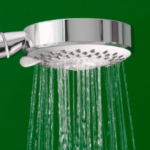Causes of itchy testicles
Feeling an itch down south? Several things cause an itchy scrotum (the pouch of skin that holds your testicles).
What's the difference between your testicles (testes) and scrotum?
Many men consider the ‘testicles’ and ‘scrotum’ as interchangeable terms but they’re two different parts of your genitals. You could think of your testicles as groceries and your scrotum as the grocery bag that carries them. Your testicles — which are also known as testes — are egg-shaped organs that sit beneath your penis between your legs. Your scrotum is a sac of skin that hangs outside of the body and is located under the penis and around the testicles.
Dryness
Dry skin on your testicles can cause itching, peeling and a tight feeling. If you've noticed dry, flaky skin, use a testicle-friendly moisturiser on the area. Opt for a pH adjusted wash for sensitive skin like Cetaphil, QV, Dermaveen or Aveeno.
Chafing, irritation and intertrigo
When your scrotum rubs against other skin it can cause irritation and chafing, resulting in pain, discomfort, a rash and sometimes itching. It can also cause intertrigo – a common skin condition that occurs in the folds of the skin and is caused by skin rubbing on skin, intensified by moisture and heat. It causes a reddish, purple, dark brown or grayish rash, depending on your skin colour, as well as itching and pain.
You can prevent and treat chafing by wearing moisture-wicking, breathable fabrics and well-fitting underwear that allows air circulation; using anti-chafing products on the skin and maintaining hygiene by cleaning the area regularly with mild soap and water; and drying thoroughly.
Sweating
Sweating a lot over a long period? Excess moisture around your groin can cause your skin to soften and break down (also known as maceration), which can lead to itchiness. Sweat can also make chafing worse as moisture increases the friction between skin surfaces. You can prevent or reduce this itching by changing out of sweaty clothes as soon as you can, opting for breathable clothing and keeping your genitals clean and dry.
Fungal infections
There are two common types of fungal skin infections — tinea and candida. Itchy balls can be a sign of either. Fungal infections often happen in areas that stay warm and moist, like your genitals. Jock itch, also known as tinea cruris, can affect your groin, inner thighs and buttocks, causing a red, itchy rash with raised edges; a burning sensation; flaking or cracked skin; scaly, red or brown patches; and a foul smell. A fungal infection caused by Candida albicans, also known as thrush, can result in itching and burning sensations. Keeping the area clean and dry can help, but if it doesn’t improve, a doctor can provide antifungal medicine to clear up the infection.
Subscribe to our newsletter

Pubic lice
Pubic lice, often called "crabs," are tiny insects that live in pubic hair. They bite the skin to feed on blood, causing irritation and relentless itching — especially at night when they're most active. You might even spot the lice or their eggs (nits) in the hair. Lice spread through close body contact, usually during sex, but they can also hitch a ride on infested clothing or bedding. To get rid of them, use special shampoos or lotions designed to kill lice and their eggs. You'll also need to wash your clothes and bedding to stop them from coming back.
Scabies
Scabies is a skin condition caused by tiny mites that burrow into the skin, leading to intense itching, including on the testicles. These mites spread through close skin-to-skin contact, often during sexual activity or by sharing bedding or clothing. You may notice small red bumps or rashes on the affected areas, and the itching tends to worsen at night. Treatment typically involves using creams or lotions prescribed by a doctor to kill the mites and their eggs, along with thoroughly washing clothes and bedding to prevent reinfestation.
Underlying medical conditions
Certain health conditions, like diabetes, kidney disease, or liver problems, can cause itching on your testicles or other parts of the body. In diabetes, high blood sugar levels can lead to skin infections or dryness, which may result in itching. Kidney or liver disease can cause toxins to build up in the blood, irritating the skin and leading to itchiness. If the itching doesn’t go away and there’s no obvious cause, it’s important to see a doctor to check for any underlying health issues that might need treatment.
Sexually transmitted infections
Sexually transmitted infections (STIs) can cause itchy testicles due to irritation and inflammation in the genital area. Infections like chlamydia, trichomoniasis, genital herpes, and genital warts can lead to symptoms such as itching, redness, and discomfort in the scrotal region. If you experience persistent itching or other unusual symptoms, it's important to talk to a doctor for proper diagnosis and treatment.
Allergies
Allergies can cause itchy testicles when the immune cells in the skin overreact to something harmless, like certain soaps, lotions, condoms, or laundry detergents. This reaction leads to irritation and itching. Try to determine what's triggering your allergies and avoid using it. If the itching doesn’t stop, a doctor might suggest a cream or medicine to soothe the irritation and reduce the allergic response.
If the itching persists or you're experiencing other symptoms, it's important to consult a healthcare provider for proper diagnosis and treatment.













